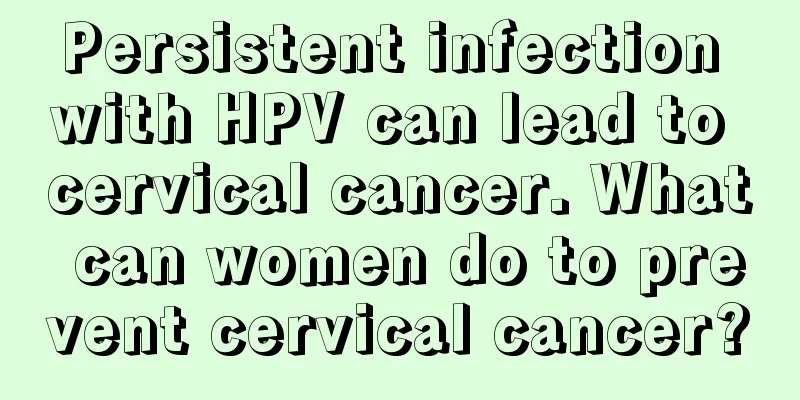Can I go to the oncology department for gallbladder cancer?

|
Patients with gallbladder cancer should be treated in an oncology department, where oncologists can provide professional diagnosis and comprehensive treatment plans. The treatment of gallbladder cancer requires multidisciplinary collaboration, and oncologists will develop personalized treatment plans based on the patient's specific situation. 1. The etiology of gallbladder cancer is complex and may be related to genetics, environmental factors, physiological factors, trauma, and pathological changes. Among genetic factors, people with a family history of gallbladder cancer have a higher risk of disease. Environmental factors include long-term exposure to chemicals, smoking, drinking, etc. Among physiological factors, diseases such as obesity, diabetes, and chronic cholecystitis may increase the risk of disease. Trauma such as long-term stimulation of gallstones may also lead to cancer. Among pathological changes, benign lesions such as gallbladder polyps and gallbladder adenomas may become malignant gallbladder cancer. 2. Treatments for gallbladder cancer include surgery, drug therapy, and radiotherapy. Surgery is the main method, and common surgical methods include cholecystectomy, partial hepatectomy, and lymph node dissection. Drug therapy includes chemotherapy and targeted therapy, and commonly used drugs include gemcitabine, cisplatin, and erlotinib. Radiotherapy is suitable for postoperative adjuvant therapy or patients who are unable to undergo surgery. Common methods include three-dimensional conformal radiotherapy and intensity-modulated radiotherapy. 3. Dietary conditioning plays an auxiliary role in the treatment of gallbladder cancer. Patients should choose a low-fat, high-protein, high-fiber diet, such as fish, lean meat, soy products, whole grains, and fresh fruits and vegetables. Avoid high-fat, high-cholesterol foods, such as fried foods, animal offal, and cream products. A moderate intake of foods rich in antioxidants, such as blueberries, green tea, and nuts, can help enhance immunity. 4. Psychological support is crucial for patients with gallbladder cancer. Patients may face emotional problems such as anxiety and depression. Seeking professional psychological counseling or joining a support group can help relieve psychological pressure. The understanding and companionship of family members and friends can also provide emotional support to patients and improve treatment compliance and quality of life. The treatment of gallbladder cancer requires comprehensive consideration of multiple factors. Oncologists will develop personalized treatment plans based on the patient's specific situation. Patients should actively cooperate with treatment, maintain a good attitude and a healthy lifestyle, which will help improve treatment outcomes and quality of life. Regular review and follow-up are important means of preventing recurrence and early detection of metastasis. Patients should follow the doctor's advice for regular checkups. |
<<: Gallbladder polyps in an eleven-year-old child
>>: Can a malignant tumor in the stomach be cured?
Recommend
I feel like there is something blocking my throat and esophagus
The feeling of something blocking the throat and ...
Does artificial abortion lead to cervical cancer? What should I do to prevent cervical cancer?
Cervical cancer is the most common gynecological ...
What are the dangers of skin verrucous carcinoma
Skin wart carcinoma is actually a rare squamous c...
How is right-sided intestinal cancer diagnosed?
Right colon cancer refers to colon cancer that oc...
The cooking habits most likely to cause cancer
Stir-frying is a cooking skill that everyone know...
What to eat to prevent bone cancer
What should we eat to prevent bone cancer? First ...
Wisdom tooth root canal treatment
Many people have wisdom teeth. Some people have t...
The principle of applying egg white to the forehead to reduce fever
There is a folk saying that applying egg white on...
How many days can a newborn baby lie on his tummy
The baby's growth stage is a topic that every...
Which hospital treats esophageal tumor
Esophageal cancer is a common tumor that seriousl...
The early symptoms of gastric perforation are actually these
Gastric perforation is a stomach disease that peo...
What kind of plaster is good for knee pain
In traditional Chinese medicine, knee pain is mos...
What are the treatments for early liver cancer? What are the traditional Chinese medicine treatments for liver cancer?
What are the treatments for early liver cancer? F...
How to check lymphoma
As we all know, cancer is a disease with a very h...
It hurts to pee in the morning
Whether it is pain when urinating in the morning ...









